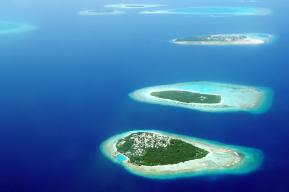Article
Science
Two Biosphere Reserves are inscribed in the UNESCO “Man and Biosphere” Programme. Moreover, a significant action has been undertaking to create the Kitab Geopark for further inscription to the UNESCO Geopark network.
UNESCO works to assist its Member States to invest in science, technology and innovation (STI), to develop national science policies and to reform their science systems. Promoting Science, Technology and Innovation (STI) has become a key policy objective in developed and developing countries. STI is a driving force for achieving the Sustainable Development Goals (SDGs), and particular, SDG 9 (Industry, Innovation and Infrastructure), which aims at building resilient infrastructure and promoting inclusive and sustainable industrialization and foster innovation.
Under a UNESCO-Islamic Development Bank project, UNESCO worked with the government to support the National Science, Technology and Innovation Policy for 2021-2030). As a result of the implementation of the UNESCO - IsBD project, GO-SPIN (Global Observatory of Science, Technology and Innovation Policy Instruments) Country Profile of Uzbekistan in Science, Technology and Innovation has prepared the publication of a report on “Mapping Research and Innovation in the Republic of Uzbekistan”, in English, Russian and Uzbek, in October 2020.
UNESCO implemented, with funding from the Swiss Agency for Development and Cooperation, a project to strengthen the governance of groundwater in transboundary aquifers” for 3 pilot regions in 2019-2022. The Pretashkent Transboundary Aquifer System, shared by Uzbekistan and Kazakhstan, is one of the pilots.
In September 2021, an Integrated Water Resources Management Assessment was completed in Tashkent and Samarqand, with the KWR Water Research Institute (Netherlands) and the Tashkent Institute of Irrigation and Agricultural Mechanization Engineers.







